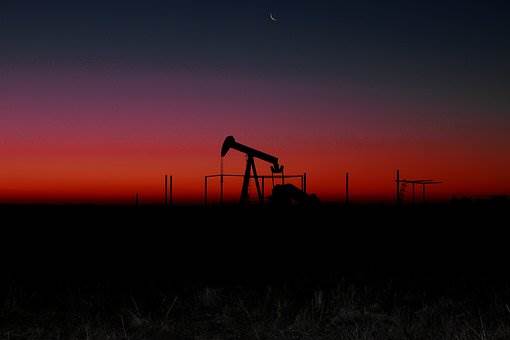 Oil futures have been falling since last Wednesday as Brent futures plummeted by 13.08 percent and Western Texas Intermediate oil futures dropped 12.8 percent.
Oil futures have been falling since last Wednesday as Brent futures plummeted by 13.08 percent and Western Texas Intermediate oil futures dropped 12.8 percent.
In order to figure out what is happening in this market, it's important to understand that the global oil market is currently being menaced by a problem that has persisted, more or less, since 2014.
Oil markets have been facing oversupply problems since 2014, as Canadian and American shale oil production peaked, a falling global demand linked to the deceleration of the Chinese economy, and the geopolitical situation became even more complicated among oil producers. Because of this, oil prices fell substantially during the 2014-2016 period, falling below the $30 level in January 2016 after being at $100 per barrel in September 2014.
There are several countries that heavily depend on their oil output, especially in terms of their finances, hence it's important for them that the oil prices are "stable" or favorable to them. This is why the OPEC, a 14-member organization that controls more than 40 percent of the global production, has made substantial efforts (often with the help of non-OPEC countries) to influence the global oil supply in order to boost the prices.
In 2016 Russia, together with another 20 nations, joined with OPEC on its efforts, creating the OPEC+ alliance. Together, they agreed to cut the oil production by 1.8 million barrels per day by November 2016. The monthly average price, which at that point had managed to recover, continued its upward trend, peaking in October 2018 as it reached the $76 level.
Since then, the monthly average price has not been able to break the $70 level. In fact, oil prices were generally lower last year than 2018, and since the beginning of the year, oil prices have been crashing due to the global economic effects of the coronavirus epidemic.
On Friday, oil futures traders learned about the collapse of the OPEC+ deal, bringing down Brent oil futures by -9.44 percent, the biggest daily loss since 2008. Conversely, WTI crude oil futures went down by 10.07 percent, the biggest day-to-day loss since 2014 and reaching its lowest level since 2016.
OPEC, lead by Saudi Arabia, has been promoting an 1.5 million barrels per day output cut, as well as extending the period of an existing production cut of 2.1 million barrels per day beyond the end of March. However, Russia expressed its lack of compliance with this plan on the latest OPEC+ meeting, which took place in Vienna on Friday last week.
"There were six hours of private negotiations but Russia and Saudi Arabia could not reach an agreement," said the Iranian oil minister after the meeting, "This was one of the worst meetings I've seen in the history of OPEC," he added.
This is, of course, bad news for the oil markets, especially taking into account claims about the oil demand being set for its largest decline in history in the first quarter due to the economic effects of the coronavirus outbreak.
Now the OPEC+ countries are expected to make their own decisions separately regarding their own output levels, however, it's highly likely that Saudi Arabia and its allies will end up reducing the global oil output by around 1 million barrels per day.
